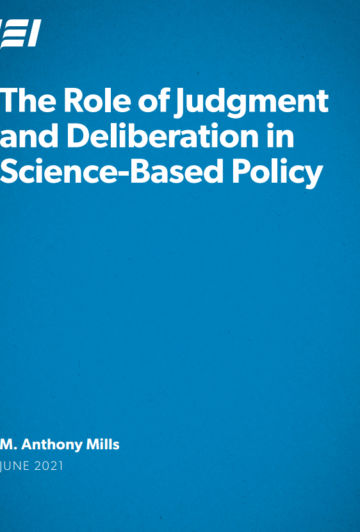
The Role of Judgment and Deliberation in Science-based Policy
M. Anthony Mills
Scientific evidence is key to public policy. But science does not offer a repository of neutral, ready-made evidence that may be translated into unambiguous policy prescriptions. Rather, scientific knowledge is an achievement, the result of a complex process in which the judgment of scientific experts plays a decisive role. Using such knowledge to make policy decisions is even more complex, requiring not only expert judgment but also the judgment of those nonexperts whose experience, knowledge, and know-how is needed to address the problem at hand. Scientific evidence is essential to this process but rarely dispositive.
Thus, integrating scientific evidence into public policy requires both judgment and deliberation. This is partly because judgment and deliberation are essential to science itself. Science, in other words, illuminates rather than eliminates the need for judgment and deliberation—especially when it comes to science-based policy. This is of particular importance for policymakers, who must ultimately decide on the proper course of action. Failure to appreciate the role of judgment and deliberation in science-based policy risks engendering unrealistic expectations about what scientific knowledge can accomplish in political decision-making, inviting not only disappointment, distrust, and skepticism but also bad policy.